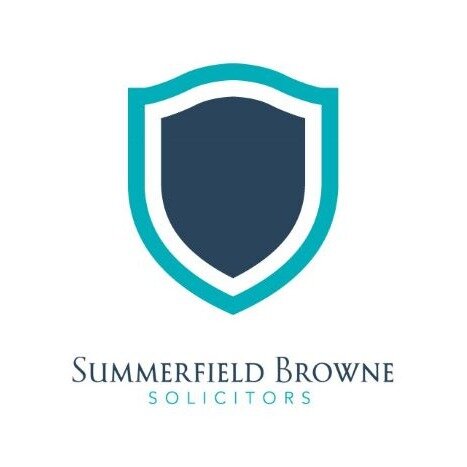Best Creditor Lawyers in United Kingdom
Share your needs with us, get contacted by law firms.
Free. Takes 2 min.
Or refine your search by selecting a city:
List of the best lawyers in United Kingdom
About Creditor Law in United Kingdom
Creditor law in the United Kingdom covers various legal processes related to the rights and obligations of creditors - the individuals or entities to whom money is owed. The law establishes the framework for recovering debts and managing disputes between creditors and debtors. It includes principles of contract law, insolvency, and bankruptcy proceedings, along with specific regulations governing debt recovery. Understanding creditor law is crucial for anyone involved in lending or borrowing, as it helps navigate the legal processes of debt collection, enforcement, and dispute resolution.
Why You May Need a Lawyer
There are several scenarios where obtaining legal help in creditor law is advisable:
- When you are a creditor seeking to recover a debt from a debtor who is unwilling or unable to pay.
- If you're dealing with complex insolvency proceedings, either as a creditor or a debtor.
- When you're negotiating repayment terms or drafting legally binding agreements related to debt.
- If you receive a statutory demand or court summons regarding a debt claim.
- To understand your rights and obligations if you're involved in bankruptcy proceedings.
Local Laws Overview
Several key aspects of local laws are relevant to creditors in the UK:
- The Insolvency Act 1986 regulates various insolvency procedures, including administration and liquidation, affecting how creditors can recover debts from insolvent debtors.
- The Consumer Credit Act 1974 governs agreements for loans and consumer credit, ensuring fair practices and protecting creditor rights.
- The Late Payment of Commercial Debts (Interest) Act 1998 gives creditors the right to charge interest on overdue payments, providing an incentive for timely payments.
- The Enterprise Act 2002 introduced reforms that affect insolvency law, positively impacting the recovery process for creditors.
- General contract law principles apply to determining the enforceability of agreements and resolving disputes.
Frequently Asked Questions
What should I do if a debtor is refusing to pay?
First, attempt to communicate and negotiate payment terms with the debtor. If this fails, you may issue a statutory demand or pursue legal action through the courts to recover the debt.
Can I charge interest on late payments?
Yes, under the Late Payment of Commercial Debts (Interest) Act 1998, you can charge statutory interest on late payments unless stated otherwise in your contract.
What is a statutory demand?
A statutory demand is a formal request for payment of a debt. It's often used as a precursor to beginning bankruptcy or winding-up proceedings if the demand is not met.
What is the difference between secured and unsecured creditors?
Secured creditors have a legal interest in a debtor's asset as collateral, giving them priority over unsecured creditors if the debtor defaults or becomes insolvent.
What are my options if a debtor is insolvent?
You may participate in insolvency proceedings like administration or liquidation, where claims are distributed based on priority, or explore alternative solutions like debt restructuring.
How do I enforce a judgment against a debtor?
Once a court judgment is obtained, enforcement options include bailiff intervention, asset seizure, or garnishing the debtor's wages.
What is the role of an insolvency practitioner?
An insolvency practitioner administers insolvency processes, such as administration or liquidation, and is responsible for realizing assets and distributing proceeds to creditors.
Can I reclaim my goods if my debtor goes bankrupt?
If you have a valid retention of title clause in your contract, you may reclaim goods delivered to a debtor before they went bankrupt.
When should I consider issuing a court claim?
A court claim should be considered if all other debt recovery measures, including negotiation and mediation, have failed and the debt is still outstanding.
What does 'winding-up' a company mean?
Winding-up is the process of liquidating a company's assets to pay off creditors in accordance with legal priorities and considerations.
Additional Resources
Several entities and organizations can provide assistance with creditor law in the UK:
- The Insolvency Service: Offers guidance on insolvency and rights of creditors.
- The Citizens Advice Bureau: Provides free advice and guidance on debt and credit issues.
- The Financial Conduct Authority (FCA): Offers regulatory oversight and guidance on consumer credit.
- The Law Society of England and Wales: Provides resources on finding legal advice and hiring a solicitor.
Next Steps
If you require legal assistance with creditor law, the following steps can guide you:
- Identify the specific legal issue you're facing and gather all relevant documentation and evidence.
- Consult with a legal advisor specializing in creditor law to assess your situation and explore your options.
- File necessary forms or claims with relevant authorities if formal legal action is required.
- Consider alternative dispute resolution methods, such as mediation, to resolve issues amicably.
- Ensure ongoing compliance with legal regulations to prevent future creditor disputes.
Lawzana helps you find the best lawyers and law firms in United Kingdom through a curated and pre-screened list of qualified legal professionals. Our platform offers rankings and detailed profiles of attorneys and law firms, allowing you to compare based on practice areas, including Creditor, experience, and client feedback.
Each profile includes a description of the firm's areas of practice, client reviews, team members and partners, year of establishment, spoken languages, office locations, contact information, social media presence, and any published articles or resources. Most firms on our platform speak English and are experienced in both local and international legal matters.
Get a quote from top-rated law firms in United Kingdom — quickly, securely, and without unnecessary hassle.
Disclaimer:
The information provided on this page is for general informational purposes only and does not constitute legal advice. While we strive to ensure the accuracy and relevance of the content, legal information may change over time, and interpretations of the law can vary. You should always consult with a qualified legal professional for advice specific to your situation.
We disclaim all liability for actions taken or not taken based on the content of this page. If you believe any information is incorrect or outdated, please contact us, and we will review and update it where appropriate.
Browse creditor law firms by city in United Kingdom
Refine your search by selecting a city.

















